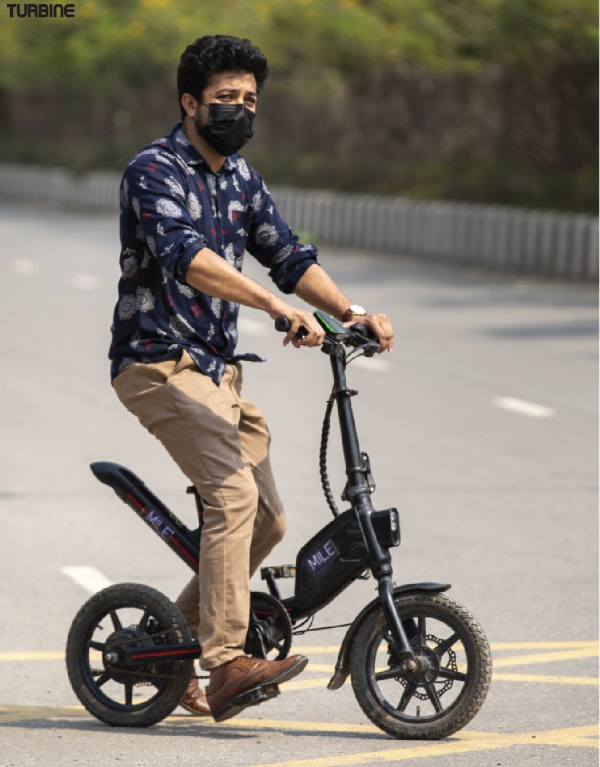The world’s first official bike-sharing program opened in the Netherlands in 1965. The signature white bikes were free and unlocked; within one month most of them had been stolen or badly damaged. That intriguing idea remained mostly dormant until it could fuse with 21st century technology. These days, GPS systems can track bikes; apps and websites can reveal how many are left at docking stations and where those stations are.
Jobike, a bicycle ride-sharing startup, launched its operations as the first of its kind in Bangladesh. With much enthusiasm they started in Cox’s Bazar in 2018 and in the following years, the startup spread its wings to six other places in Dhaka, Chattogram and Sylhet. But as the pandemic hit Dhaka streets the and country wide lockdown was issued the bikes were stranded and now the company only exists in one location, Mirpur DOHS.
MILE has come from the same concept only with a better execution. MILE is a transportation platform which is powered by technology that enables seamless urban mobility through public and private transport modes. MILE operates through an user-friendly mobile app, using Micromobility Vehicles.
When Mile comes into operation, the users will get mobility services through an app. In the areas where the service will be available, you can get hold of their bicycles through the app and ride to your destination. You will be charged Tk1 per minute.
Now let’s get some ideas about the cycle itself. All of Mile’s vehicles are electric, but they can be paddled manually like normal cycles or you can use a booster paddle where using five paddles will get you an output of around 25 paddles. In some ways it can be considered an electric motorbike. Once fully charged, the battery will run for up to 40 km.
Their cycles would cost around Tk35,000 to produce, a little more than traditional bicycles. Other than that to reduce carbon emissions and reduce cost they are working on making the batteries renewable so that they can be reused.
“There is a lot of traffic, pollution and individuals suffering in Dhaka caused by our own actions. We wanted to tackle all of those challenges and provide a micro-mobility solution which was not only technology backed, it was app-based, it was to provide a green solution, and add to the green economy,” said CEO Kuraish.
The founders said that all the developments of the prototypes are built in-house. “From IOT, backend, front end and hardware, we are making everything through the company. Everything is quite self-sustainable within Mile. That is something we take pride in,” Imran said.
“Our target is to facilitate and promote Made in Bangladesh. If we can make everything in Bangladesh, why not?” he added.
Team MILE believe that even though there are many alternate modes of quick and cheap travel they have a great chance at competing among them. When asked they said in general a rickshaw ride would cost more and take more time when compared to a MILE bike and even though a bus would be more cost effective it would take substantially longer to cover the same distance.
The founders also stated three of their vehicles are currently disbursed in different areas of Dhaka city for research and development purposes, to collect data in terms of user hotspots, how to operate in the traffic congestions and environmental impacts.
Initially Mile plans to begin its service in Dhaka and eventually spread across the country. “We are about to end our piloting. We are fundraising. We can start as soon as we can lock an investment,” said Kuraish.



